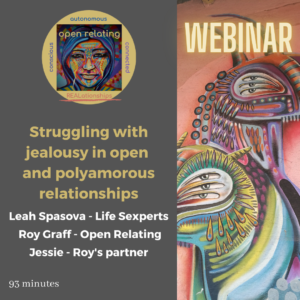Oftentimes when jealousy kicks in, we are in a “fight or flight” mode of survival response. Our nervous system perceives a threat and wants to defend. In this article, I look at some techniques for centering and grounding yourself so that you can be get to a more empowered stance for healing.
Our nervous system and how it responds to perceived threats
We can learn to heal from feelings and process emotions in a healthy non-destructive way through first identifying them and then diffusing their potent power. But in cases of extreme emotion, we will face strong resistance in the body. This is because of unresolved trauma that had been stored in the body, sometimes since early childhood. It is possible that the underlying experience is no longer remembered in the mind, but the body still remembers.
Our brain has evolved over time from a relatively simple reptilian brain to a more socially sophisticated mammalian brain, and finally to the human brain that has the capacity to transcend simple biological instincts of survival and mating. The vagus nerve, which is at the heart of the parasympathetic nervous system, connects our body to our brain-stem.
We have inherited from our reptilian and mammalian ancestors a set of tools for survival that were useful for them, but can often get in a way for us humans. As mammals, we evolved the need to co-regulate with others of our species. You have probably heard of the fight or flight mobilisation system, from our mammalian ancestors, and the freeze immobilisation system from our reptilian brain. When those parts recognise danger, our higher functions are shut down to divert resources to the survival systems. Because of this, if there is any trauma in your past, a sensitive event such as being told your partner hid something important from you, or is wanting to open up your relationship, can be a triggering event that all of a sudden feels as if your entire life is in mortal danger.
When this happens, it is no longer about those ‘parts’ of you but a deeper, instinctive survival response of fight, flight, or freeze. Some psychologists have added fawn. A fight response assumes that you are under attack and must defend yourself, coming out with all guns blazing and no regard at all to what the other person is feeling or needing in the moment. A flight response will see you just giving up, assuming all is doomed and the only way is to leave. A freeze response can look like paralysis, feeling totally stuck and helpless, unable to move or going on ‘autopilot’. Fawn is another way of expressing a freeze response by disassociating completely with your needs and making the other person your sole focus.
Somatic (embodied) approaches to self- and co- regulation
This level of somatic response is harder to process and heal through self-work. I recommend that you seek professional help to process deep seated trauma that is triggered when feelings of jealousy emerge, ensuring your counsellor or therapist is trauma-informed. Some of the therapies and practices that have helped people regain control over their emotions so they can begin to process and heal the causes, include:
- TRE – Trauma Response Exercises
- EMDR – Eye Movement Desensitization and Reprocessing
- Breathwork – There are several techniques available based on Buddhist, Daoist, Tantric practices
- Yoga – Especially slow, grounding yoga such as Hatha
- Taichi – Chinese practice that combines martial arts with meditation
- Qigong – Chinese practice combining breath, meditation and body movement
- Meditation – Disidentification from our mind, feelings and body so we bear witness to what is happening inside
- Physical exercise – Practicing being in your body and regaining control, working with the breath
- Jealousy part 1: How to understand jealousy?
- Jealousy part 2: Between Love and Fear
- Jealousy part 4: Navigating our emotional landscape
-
 Coaching – for individuals£110
Coaching – for individuals£110 -
 Turning Jealousy into Information (recorded April 2022)£10
Turning Jealousy into Information (recorded April 2022)£10 -
Product on sale
 Struggling with Jealousy in Open and Polyamorous RelationshipsOriginal price was: £8.£0Current price is: £0.
Struggling with Jealousy in Open and Polyamorous RelationshipsOriginal price was: £8.£0Current price is: £0.








[…] discuss more about how to understand our jealousy and pinpoint the emotions, and how to process body-centred triggers that overwhelm us. Those are important steps before we can be ready to focus on self-care and […]
[…] Jealousy part 3: The body’s trauma response […]
[…] part 1: How to understand our jealousy?Jealousy part 3: The body’s trauma responseJealousy part 4: Navigating our emotional […]
[…] Read more in this article. […]